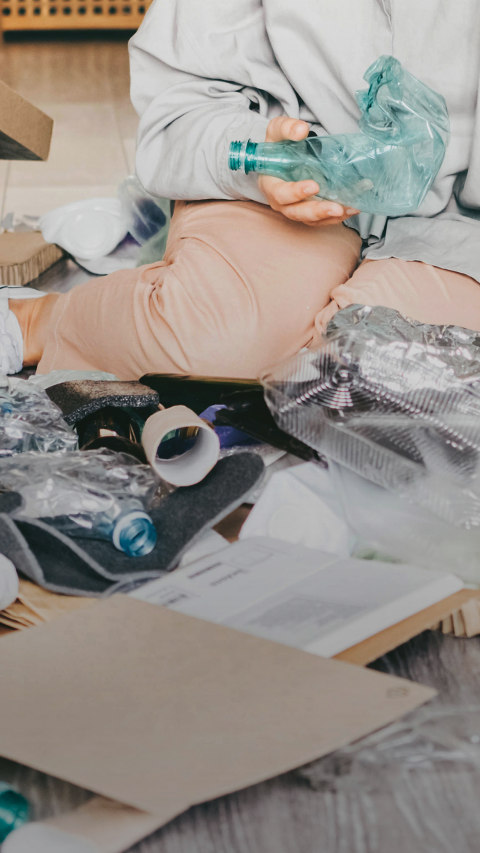Waste is a valuable resource

Professor Linda Godfrey
manages South Africa’s Waste RDI Roadmap Implementation Unit, a strategic governmental initiative. Her research focuses on the economic, social and environmental opportunities of innovative waste strategies in developing economies.

Creating Chemistry: Your work focuses on the role of the waste sector in transitioning South Africa to a green economy. How can the country capture more value through recycling?
PROFESSOR LINDA GODFREY: We need a paradigmatic shift to thinking about waste as a valuable resource, especially for a post mining landscape. In 2014, we sent 17 billion rands (€900 million) worth of resources to landfill: polymers, nutrients and metals all lost to the economy. Economies of scale are required to make recycling successful, but we must avoid creating opportunities for overseas dumping. One area for unlocking incredible innovation is greater local recycling of electronic waste.
What do you consider the primary challenges to effective waste management in Africa?
First, we need to bring waste under control. Over 90 percent of solid waste is disposed to dumpsites and often burnt in the open. We need to extend collection services and transition to engineered waste disposal facilities for residual waste. Second, with growing consumption rates across Africa, packaging waste, in particular plastics, is causing increased environmental pollution. Third, we need to deal with the dumping of waste, especially hazardous electronic and chemical waste, in Africa by developed countries.
How can these issues be tackled?
We need willingness and leadership to address the waste issue at the highest possible level across all African countries, and partnerships among government, business and society. We must raise citizens’ awareness as consumers and generators of waste, and partner with business as both producers and developers of end-of-life solutions.
What initiatives are being developed at the community level?
Many social innovations are emerging. Trash Out is a citizen science project alerting South African authorities to local dumping. Where there are inadequate local services, apps such as Wecyclers or Waste Bazaar in Nigeria link waste generators to private services. Some waste streams can be successfully decentralized, such as collecting organic waste to produce compost or biogas. One of the biggest innovation challenges is how to deal with plastics in a decentralized way and get communities involved. Many African countries want to ban single use plastics because they don’t see any way to deal with it. We must find solutions to reduce plastics consumption in Africa while improving end-of-life management options. This could include finding decentralized ways of dealing with recycled plastic at scale, for example by developing local 3D-printing facilities.
Why do you believe that waste can be a tool for development?
There is already a large informal reuse and repair sector across Africa, so we’ve been driving a circular economy for decades without calling it that. Investing in waste management moves resources out of dumpsites and into local economies. It improves public health, retains control of national resources and supports a green economy. The higher we move waste up the waste hierarchy away from landfilling and toward prevention, the more jobs are created in the reuse, recycling and recovery industries.

